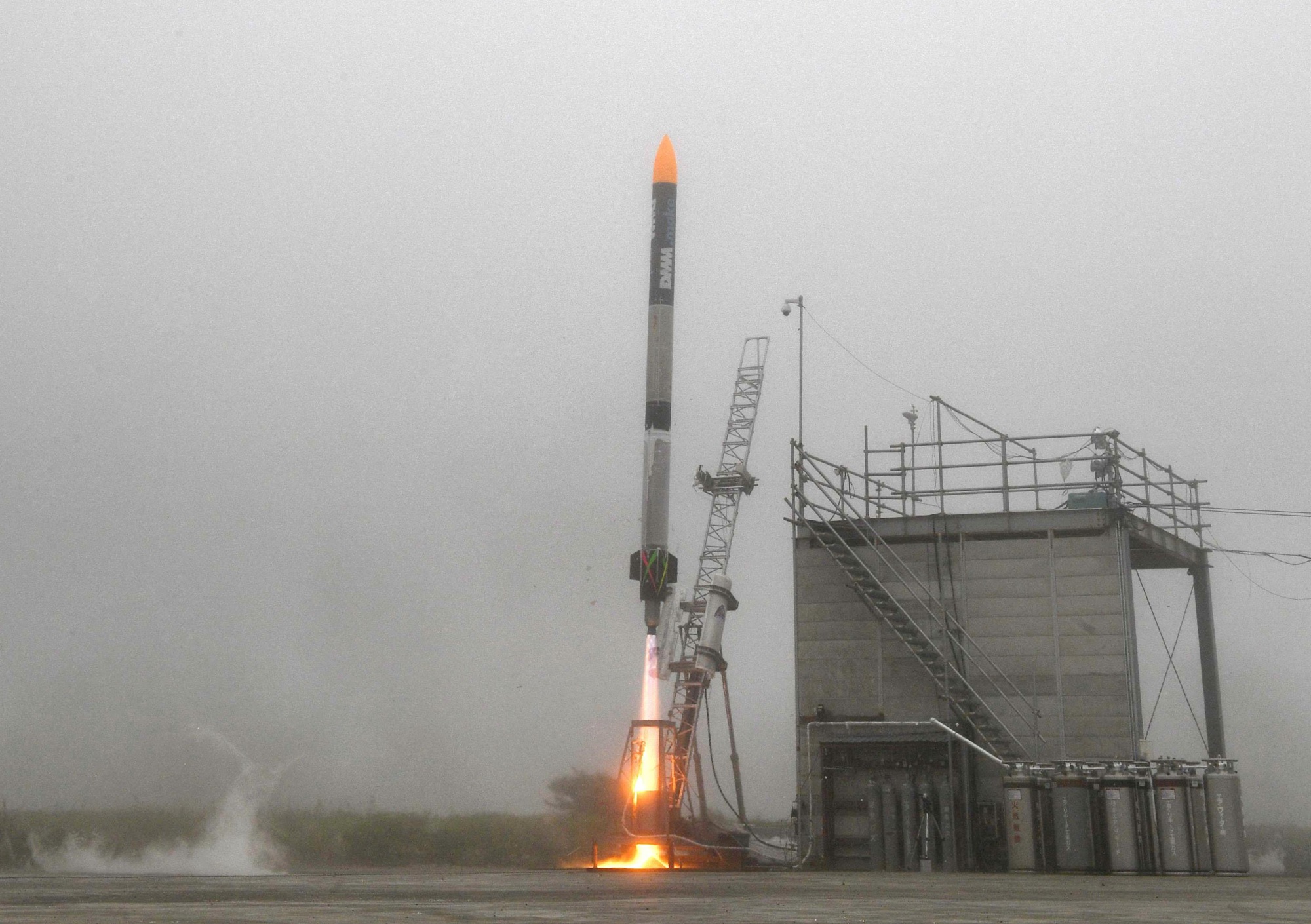The launch of what would have been Japan's first privately developed rocket to reach outer space failed Sunday off Hokkaido after telemetry was lost, forcing it to be aborted, the Hokkaido-based developer said.
Officials from Interstellar Technologies Inc., founded by former Livedoor Co. President Takafumi Horie, said the 10-meter-long Momo rocket was aborted after communications with the rocket's telemetry system failed about 80 seconds after liftoff. The rocket was launched from the town of Taiki, on the island's south coast.
The rocket fell into the Pacific Ocean about 8 km offshore after its engine was halted, they said.
The rocket, weighing a little over 1 ton and with a diameter of around 50 cm, was designed to reach an altitude of 100 km — beyond the boundary between the Earth's atmosphere and space — and descend by parachute into the ocean.
The company aims to use Momo to pave the way for a commercial microsatellite launching service.
To develop a rocket without government funding, the company reduced production costs by making some of the parts on its own and outsourcing other items, such as the semiconductors and screws.
The launch is believed to have cost around ¥50 million, which the company said it collected from its sponsor, digital contents provider DMM.com, and through crowdfunding.
Interstellar Technologies was founded in 2013 and currently has 14 employees.
The rocket was originally intended to be launched on Saturday but was delayed by fog, which pushed back the launch to Sunday.
Several dozen spectators had already arrived at a viewing point about 1.5 km away from the launch site on Saturday morning to monitor the event.
"I hope a successful launch will help revitalize the Hokkaido economy," Masafumi Fujita, 61, who came from Sapporo to see the launch, said.




